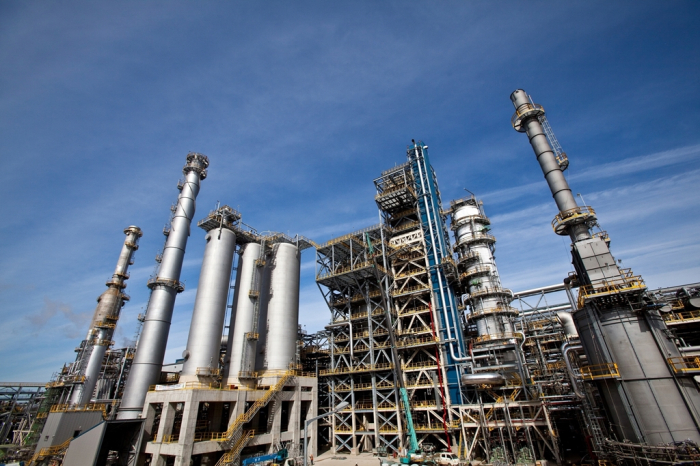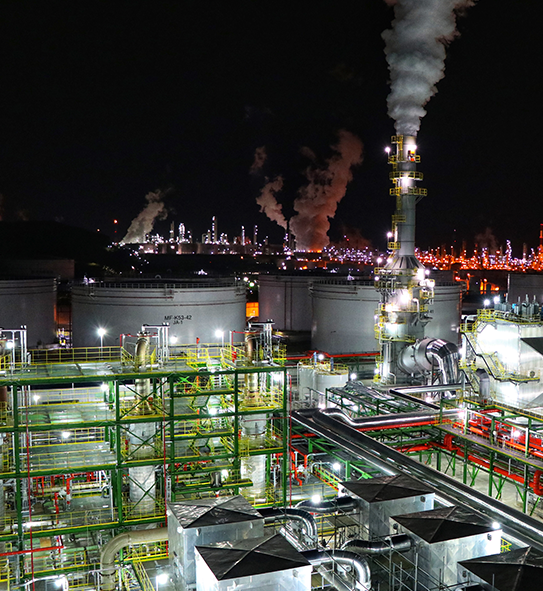Regulations
Korea may fine Aramco-backed Hyundai Oilbank $119 mn over wastewater
Hyundai Oilbank says it has sent wastewater to a JV for reuse and the water was properly treated before discharging
By Jan 06, 2023 (Gmt+09:00)
3
Min read
Most Read
LG Chem to sell water filter business to Glenwood PE for $692 million


Kyobo Life poised to buy Japan’s SBI Group-owned savings bank


KT&G eyes overseas M&A after rejecting activist fund's offer


StockX in merger talks with Naver’s online reseller Kream


Mirae Asset to be named Korea Post’s core real estate fund operator



South Korea is set to impose a fine of 150.9 billion won ($118.9 million) on Hyundai Oilbank Co., a local refiner backed by Saudi Aramco, for allegedly discharging wastewater containing more toxic substances than allowed under regulations.
“Hyundai Oilbank received a prior notice about the Ministry of Environment’s fine of 150.9 billion won,” the refiner’s parent company HD Hyundai Co. said on Friday in a filing to a financial regulator. The penalty would be more than a third of Hyundai Oilbank’s 2021 net profit of 449.6 billion won on a separate basis.
“But the imposition and amount of the fine have not been finalized and Hyundai Oilbank is actively cooperating with the investigations of related authorities.”
Hyundai Oilbank has been under probe by the ministry and local prosecutors on charges of sending wastewater with harmful substances from its refinery in Daesan through pipelines to its neighboring joint venture with OCI Co., the country’s lone polysilicon maker, for reuse as industrial water, according to local media reports.
MORE PHENOL THAN REGULATED
The refiner sent about 950 tons of wastewater containing more phenol than allowed under daily regulations to Hyundai OCI Co., a carbon black producer, from October 2019 to December 2021, The Chosun Ilbo reported. Hyundai OCI used the wastewater for industrial purposes.
The company processed the water after reuse at the wastewater treatment plant to meet discharge regulations and discarded it.
The ministry decided to impose the fine, judging Hyundai Oilbank sent the wastewater with phenol to a different company Hyundai OCI, according to media reports.
A South Korean law allows wastewater from discharge facilities to contain less than 1 milligram of phenol per liter, but the wastewater from Hyundai Oilbank had up to 6.6 milligrams, the state-run Korean Broadcasting System said. The country will impose a fine of up to 5% of a violator’s sales. Hyundai Oilbank reported sales of 20.3 trillion won in 2021.
EXCESSIVE FINE
Hyundai Oilbank, however, said the fine was excessive as Hyundai OCI discharged the wastewater after proper treatment.
“The wastewater was reused due to the chronic water shortage in Daesan Industrial Complex and it did not cause any casualties and damages, nor environmental pollution as the wastewater was discharged in accordance with legal standards,” Hyundai Oilbank was quoted as saying by Yonhap News Agency. “The practice was a measure to save resources and protect the environment by reducing water use and wastewater.”
The company also pledged to investigate all the facts through “proper procedures” if any measures that cause disruptions to the management are imposed only because two different companies operate wastewater recycling facilities although they are the same, according to Yonhap.

Hyundai Oilbank has been asking authorities such as the Korea Rural Community Corporation (KRC) to increase water for industrial use in Daesan, about 150 kilometers southwest of Seoul, since 2018, The Chosun Ilbo reported.
The KRC, however, refused the request due to drought, saying it could suspend the supply of industrial water in July 2019, according to the report.
Officials of Hyundai Oilbank and the Ministry of Environment were not available for comment.
Write to Yong-Hee Kwak at kyh@hankyung.com
Jongwoo Chon edited this article.
More to Read
-

-
 Korean chipmakersSamsung in talks to supply customized HBM4 to Nvidia, Broadcom, Google
Korean chipmakersSamsung in talks to supply customized HBM4 to Nvidia, Broadcom, GoogleApr 30, 2025 (Gmt+09:00)
-
 EnergyLS Cable breaks ground on $681 mn underwater cable plant in Chesapeake
EnergyLS Cable breaks ground on $681 mn underwater cable plant in ChesapeakeApr 29, 2025 (Gmt+09:00)
-
 Business & PoliticsUS tariffs add risk premium to dollar assets: Maurice Obstfeld
Business & PoliticsUS tariffs add risk premium to dollar assets: Maurice ObstfeldApr 29, 2025 (Gmt+09:00)
-

Comment 0
LOG IN


